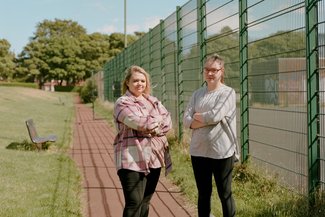We, alongside many of our partners across the sector, are highly encouraged by Lord Chancellor Shabana Mahmood's announcement of the creation of a Women's Justice Board at Labour Conference.
This is a huge win for all of us fighting to end the cycle of harm women and their communities experience as a result of the prison system. This is a particular achievement for our members, the National Women’s Justice Coalition, who have campaigned so hard for this specific measure.
We were especially glad to see clear focus, alongside the critical need for community-based support, on the acute challenges facing young women in custody - in particular, the rate to which they self-harm.
Begun in 2020, our Young Women's Justice Project, together with the Alliance for Youth Justice, was the first to make the national case for specialist services for girls and young women in contact with the justice system.
Last year, we published A Call to Action, showing that self-harm among young women in prison has been consistently rising over recent years, and that they are self-harming more than any other age group in the female prison estate.
Many women in prison arrive there due to lack of support around multiple, intersecting needs, such as poverty, poor mental health, addiction, homelessness and domestic or sexual violence. Racism, experience of the care system, and other forms of trauma or abuse often compound these needs, or limit women’s access to support.
This is particularly true for girls and young women, who are systematically overlooked in policy and practice. Without support, these disadvantages can worsen, but if girls and young women’s needs are met early, there is an opportunity to end the cycle of harm and change the trajectory of a girl or young woman’s life.
This is why we have long campaigned for a Young Women’s Strategy, where the needs of young women in touch with the criminal justice system would, for the first time, be centered in government policy.
Throughout the Young Women’s Justice Project, young women have consistently emphasised the inadequacy and harmfulness of the current criminal justice system and have identified clear opportunities for improvements, diversion and support.
The lived experience and expertise of young women must therefore underpin the design and development of a forthcoming Young Women’s Strategy, as well as the design of all services intended to support them.
We were involved with discussions with the previous government on plans for a co-produced Young Women's Strategy, and hope to work with Shabana Mahmood and the Women's Justice Board to make this a reality.




